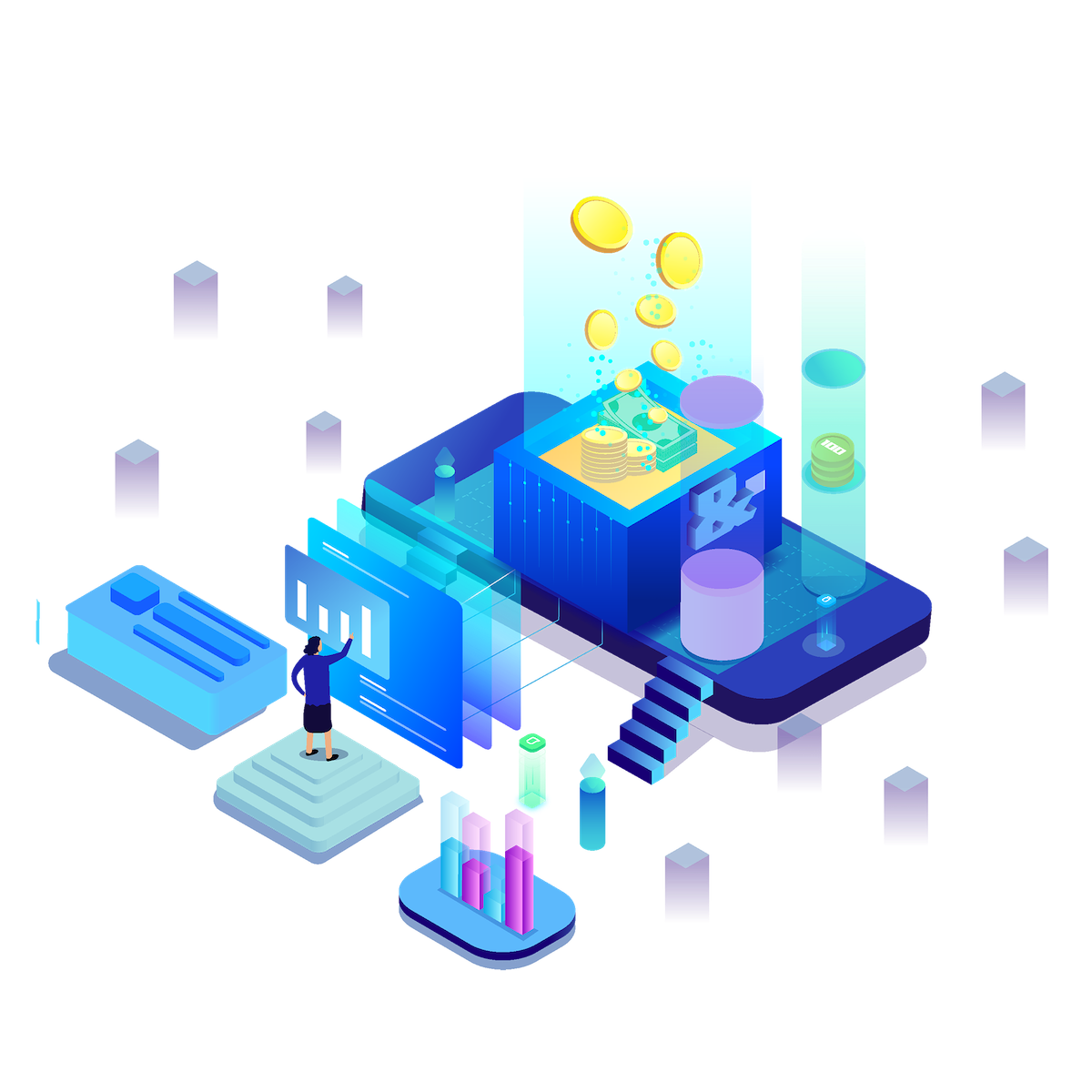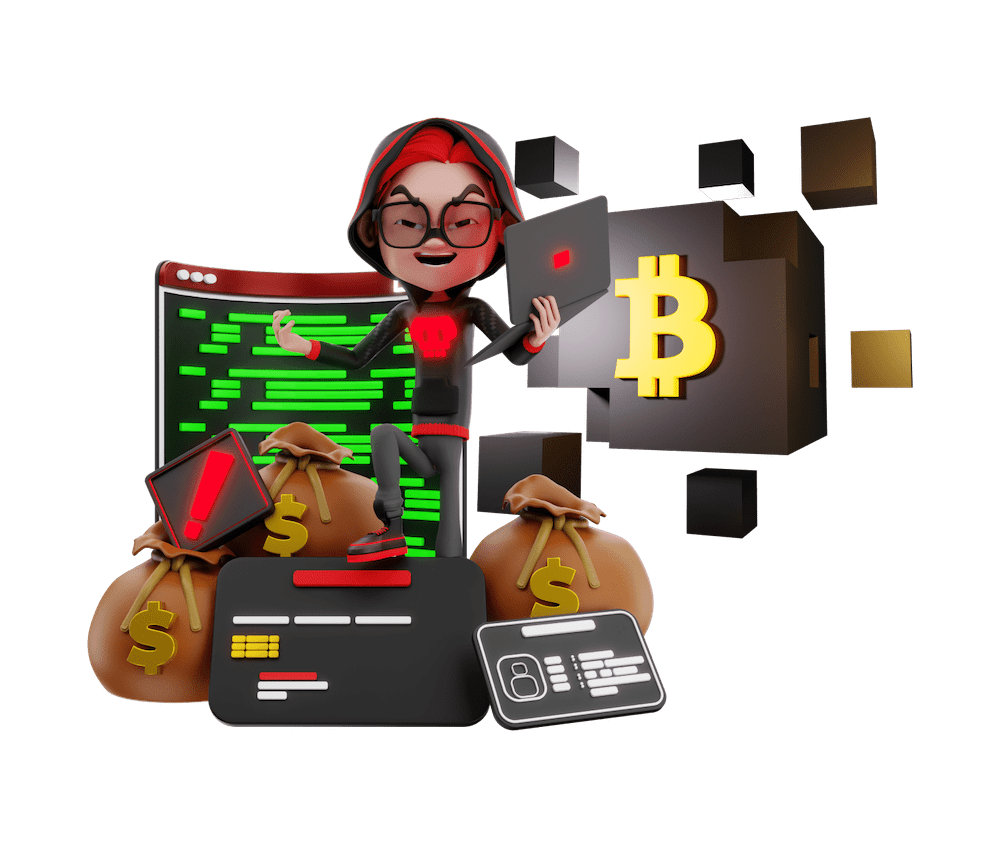Blockchain 101 - Things to Know for Beginner Traders
Blockchain is one of the most revolutionary technologies in the world today. It has the potential to completely revolutionize how financial transactions occur and how assets are exchanged. As a beginner trader, it’s important to understand blockchain and its implications for your trading activities.


Blockchain - Meaning
Blockchain is a decentralized, distributed ledger used to record and store digital transactions. It works by creating a continuously growing list of records called blocks, which are connected using cryptography. This enables anyone with access to the blockchain to view its entire history.
To explain it easier, let’s say the blockchain is like a digital version of a checkbook register. Each time you write on it, all the other participants in the blockchain have access to it and can view the entire history.
Pros & Cons of Blockchain
Pros
- Fast Transactions
- High Transparency
- Low Transaction Fees
- Enables Smart Contracts
- High Level of Security
- Various Solutions for Business
Cons
- Transactions Can Not Be Reversed
- Transactions Are Visible
Benefits of Blockchain
Blockchain offers numerous advantages over traditional financial systems. Transactions are faster and more secure since they don’t need to pass through banks or other third parties. It also provides greater transparency, since all data is easily accessible and can be audited.
In addition, transaction fees are much lower compared to traditional financial systems.
Another advantage of blockchain technology is that it enables smart contracts, which are computer programs that automatically execute transactions when certain conditions are met. This makes it easier for businesses and individuals to conduct transactions without having to go through a slow and expensive process.
Finally, blockchain technology provides high levels of security since all the data is stored across multiple computers and protected by encryption. This makes it nearly impossible for hackers or other malicious actors to compromise the system. This factor is very good to know when you trade with crypto signals on Telegram and want to ensure your assets are safe in your wallet or crypto exchange.
Risks Connected to Blockchain
Despite the numerous advantages of blockchain, there are some risks associated with it. Since transactions can’t be reversed, mistakes can’t be undone and funds can’t be recovered if something goes wrong. So, if you pay for the subscription to a day trading crypto channel, you will not be able to charge the money back automatically. So, we recommend you check crypto signals channels before sending the payment for a subscription.
In addition, since all data is publically accessible, all transactions are visible to anyone with access to the blockchain. This means that users’ identities and other personal information can be exposed, putting them at risk of identity theft or fraud.
Furthermore, blockchain technology is still relatively new and unproven. This means that there are a lot of unknowns and the possibility of bugs that could lead to security breaches or other issues. But anyway, you don’t need to worry about it when trading Bitcoin or other promising cryptocurrencies in 2024.
What Are the Key Elements of Blockchain?
The key elements of blockchain are decentralization, cryptography, and consensus. Decentralization means that the ledger is distributed across multiple computers, ensuring no single organization has control over it. This fact is great to know when you are worried that your crypto assets may not be safe because you hold them on a crypto exchange. Cryptography ensures that all data is secure and can’t be altered without authorization. Consensus ensures that all participants in the network agree on the validity of a transaction.
What Are The Benefits of Blockchain in Terms of Crypto Trading?
Cryptocurrency trading has become more popular in recent years, thanks in part to blockchain technology.
Blockchain offers a secure and efficient way for users to buy, sell, and trade digital assets in a long term without the need for third parties like banks or payment processors. This means that transactions are faster, more secure, and less expensive than traditional methods. Check the Cornix bot review to know more about automated trading for crypto signals.
In addition, blockchain technology makes it easier to track cryptocurrency transactions and prevent fraud. It also provides greater transparency into the trading process, allowing users to easily view all the data related to their trades.
Finally, blockchain offers a decentralized system that is not controlled by any single entity or government. This reduces the risk of manipulation or censorship by authorities, allowing users to freely trade without interference.
In conclusion, blockchain technology has many benefits when it comes to crypto trading. It offers secure, fast, and inexpensive transactions as well as greater transparency and freedom from government control or manipulation. This makes it an attractive option for those looking to get into the world of cryptocurrency trading with a swing trading strategy.
Can Blockchain Be Hacked?

Yes, blockchain technology can be hacked. However, the risk of a successful attack is significantly lower than in traditional systems since there are multiple layers of security in place and data is stored on multiple computers across the blockchain network. In addition, the hackers would need to access all the computers in order to successfully steal or alter data, making it much more difficult and unlikely.
Furthermore, the distributed nature of blockchain technology also makes it more secure since even if a hacker managed to gain access to one node on the network, they would not be able to access all the data stored across the system. They would also not be able to alter it without being detected by other computers in the network. So, you can rest assured when you trade signals on Binance or another safe and legit exchange.
Web3 VS. Blockchain – Is It The Same?
No, web3 and blockchain are not the same. Web3 is an umbrella term for a group of technologies that enable users to interact with decentralized applications (Dapps) on the Ethereum blockchain. Blockchain, on the other hand, is the underlying technology that powers digital currencies like Bitcoin and Ethereum.
Web3 allows developers to build apps on the Ethereum blockchain, while blockchain provides the foundational infrastructure that enables these apps to interact with each other. Web3 also provides a way for users to access and use Dapps without having to understand the underlying technology.
In conclusion, web3 and blockchain are two different technologies, but they work together to power applications on the Ethereum blockchain.
What Are Smart Contracts?

Smart contracts are digital agreements that are stored on the Ethereum blockchain. They are used to facilitate, execute, and enforce the terms of a contract between two or more parties without the need for a third party. Smart contracts allow users to transact with each other in a secure and trustless manner by using code instead of legal language.
The code inside a smart contract is written using Ethereum’s programming language, Solidity. This code can be used to define the conditions of the agreement between two or more parties, such as when payments should be made and what happens if certain conditions are not met.
Smart contracts also allow users to automate processes on the blockchain, ensuring that transactions occur only when certain conditions are met and eliminating the need for a middleman or third party. They are an important part of the Ethereum ecosystem, providing users with a secure and trustless way to transact.
What Applications Can Be Built on Blockchain?

Blockchain technology can be used to build a wide variety of applications, from financial services to healthcare and supply chain management.
In the financial sector, blockchain can be used to create secure digital wallets, process payments quickly and securely, track assets or stocks in real-time, provide investment advice, issue bonds or equity for crowdfunding campaigns, manage insurance claims, and more.
In the healthcare sector, blockchain can be used to securely store and share medical records or genetic information, create clinical trial management systems, facilitate digital prescription refills, track drug supplies across international borders, and more.
In supply chain management, blockchain can be used to monitor shipments in real-time, improve visibility into product origins, verify the authenticity of goods, and keep track of inventory.
Blockchain technology can also be used to develop applications for voting, creating digital identities, developing smart contracts and decentralized autonomous organizations (DAOs), and more. The potential applications for blockchain are nearly limitless; it is only limited by the imagination of developers.
Blockchain 101 – Final Thoughts
Blockchain is a revolutionary technology that has the potential to change the way we interact with the digital world. It is a distributed database that allows for secure, transparent, and tamper-proof transactions. Blockchain can be used to build a wide variety of applications, from financial services to healthcare and supply chain management. Also, thanks to blockchain, you can be an active trader and use paid crypto signals or even free trading signals when they are available.
The possibilities for blockchain are truly endless. As the technology continues to evolve and more developers learn how to use it, the number of applications that can be created will only continue to grow.
As more organizations and individuals adopt blockchain technology, we will continue to see its potential realized in new and exciting ways. With blockchain, anything is possible!
Frequently Asked Questions
Learn how to get started


